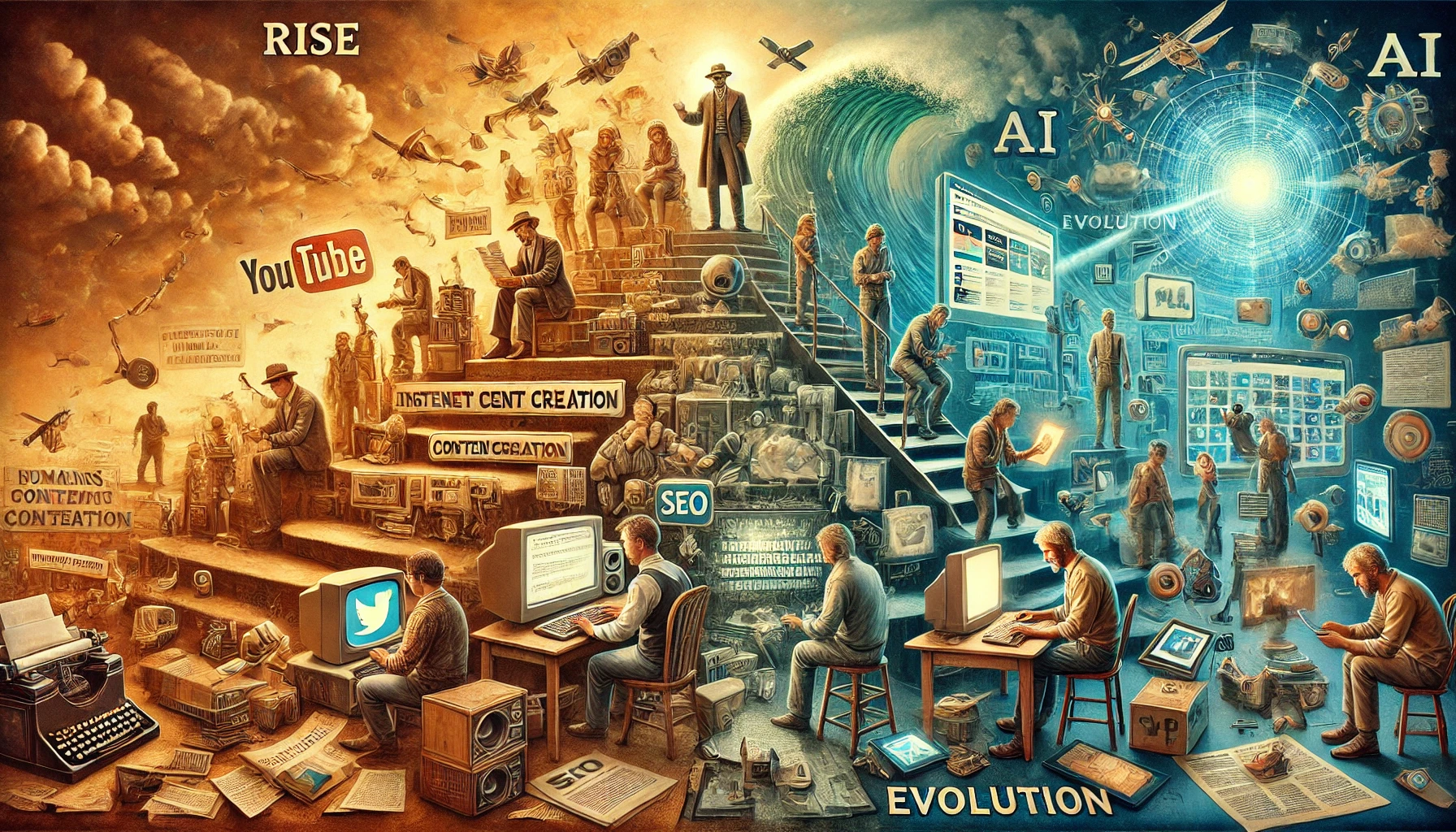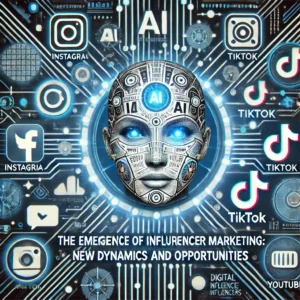Last Updated on February 18, 2025 by factkeeps
Table of Contents
The Decline of Creativity: How AI is Changing Content Creation
In 2000, the dot-com bubble burst, sending shockwaves through the industry. Many experts and analysts predicted the end of the internet. But in reality, it was a new beginning. Even Amazon, now one of the world’s most valuable companies, saw its stock nosedive by more than 90% from its peak. Over time, however, it rebounded and became an integral part of the global economy.
Over the last two decades, SEO changed the way marketing worked. Writers who couldn’t adapt to SEO-friendly writing struggled to reach their audience. Then came social media, bringing a fresh wave of good content. But soon, a flood of content—driven by paid marketing—took over, leading to creators complaining about their inability to reach audiences organically.
This was also the time when discussions around the Dead Internet Theory started circulating. This theory suggests that the internet essentially “died” around 2016-2017. Ironically, this was also when the creator economy was taking shape. India, one of the largest internet markets, witnessed a revolution with free internet, thanks to Mukesh Ambani’s company offering six months to a year of free data. Internet prices dropped to as low as $0.33 per GB, one of the lowest in the world, leading to an explosion of online creators—not just in India, but across the U.S., Europe, and the Middle East.
Then TikTok arrived, revolutionizing short-form video content and completely changing the game. Almost anyone with an interest in entertainment started creating content, marking a new beginning for the internet—ironically, at the same time the Dead Internet Theory was making waves. While the theory claimed the internet was becoming dominated by AI bots, humans were actually generating an overwhelming amount of content, flooding the internet with both valuable and garbage content alike.
The SEO Trap and AI’s Impact on Content Creation
In the race to meet SEO demands, we saw how quality content was sacrificed. Many articles became nothing more than keyword-stuffed, repetitive blocks of text designed to rank on search engines rather than provide real value. Google rewarded these pages with visibility, as they brought in eyeballs, and eyeballs brought ad revenue through AdWords and AdSense. No one seemed to prioritize improving content quality.
I personally know many people—including myself—who wanted to create content but faced language barriers, limited vocabulary, or struggled to convey messages clearly. Now, thanks to AI, they are able to create content more efficiently. I see potential in this, and I hope we will witness a rise in AI-assisted creators who are still driven by human creativity. After all, the concept isn’t entirely new—humans have always created characters and fictional personalities that we love and follow. The only difference now is that content creation is becoming more decentralized.
Is AI Killing Content Creation?
But if you ask me, how is content creation dying? The answer lies in our over-reliance on AI. When we stop thinking critically and let AI do all the work, we risk losing our creativity. Over time, this will make us less capable of handling real challenges.
A recent study by Microsoft and Carnegie Mellon University found that workers using generative AI tools like ChatGPT showed a decline in critical thinking skills. Yes, Microsoft—the company heavily invested in AI—conducted this study, which clearly signals the need to preserve and enhance human skills rather than replace them.
I’ve observed that many creators, even those with large followings, have started using AI-generated videos and generic, automated content. This is creating an internet filled with recycled, unoriginal information, effectively paralyzing true creativity. I am not against AI—I am one of the first adopters of this technology. I actively test AI tools in beta versions and explore their capabilities. But I strongly disagree with those who use AI just to game the system, hit technical parameters, and flood social media with low-effort content.
Just as people once tricked SEO algorithms to rank higher on Google, today they are manipulating social media to gain visibility with AI-generated posts. This, in my opinion, is eroding the quality of content on the internet.
The Future of Content Creation
Creating and sharing content has never been easier, thanks to multiple social media platforms. However, the rise of AI-generated content is making it increasingly difficult to find truly human-created work. While AI-generated videos are not yet mainstream, written content is overwhelmingly AI-produced, restricting creative freedom and drowning out authentic voices.
It’s time we recognize the value of our skills, hone them, and actively work on improving them. If we don’t, someone else will—and they will take our place. This is a reminder to myself as well: laziness is our biggest enemy.
If we fail to respect and invest in content creation, we will soon find ourselves in a digital world where originality is rare, creativity is suppressed, and AI dominates everything. Let’s not allow that to happen. Let’s use AI as a tool to enhance creativity, not replace it.



